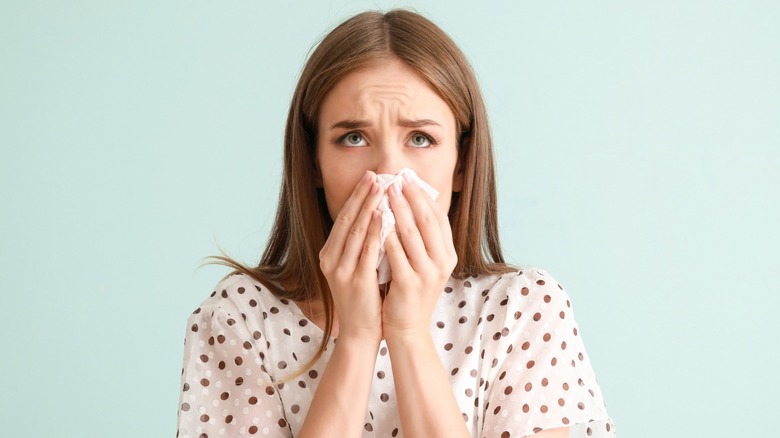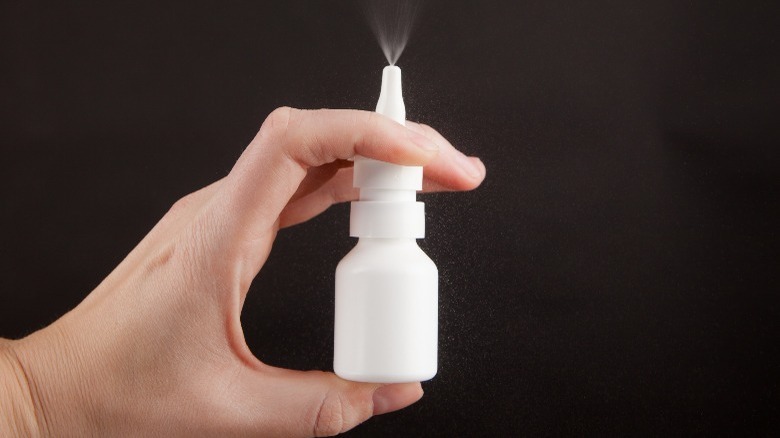Here's What's Really Causing Your Congestion
Given the spread of the highly transmissible Omicron variant, it's understandable that the moment you experience a stuffy nose, you may think that you are infected with COVID-19. However, there could be many reasons that you have nasal congestion, so before you start to worry, consider that it's possible that your stuffed-up or runny nose could be due to something else entirely.
According to the experts at the Mayo Clinic, "Nasal congestion can be caused by anything that irritates or inflames the nasal tissues." This means that there is a wide range of circumstances that could be at the root of the problem. Certainly, congestion could be a sign of a cold, flu, or, yes, the coronavirus.
However, it could also be due to an allergy or a nonallergic condition called vasomotor rhinitis, which the Asthma + Respiratory Foundation NZ describes as "a hypersensitive response to stimuli such as a dry atmosphere, air pollutants, spicy foods, alcohol, strong emotions, and some medications." Other possible causes for your congestion could be related to hormonal changes, sleep apnea, nasal polyps, or a foreign body within the nose, among others (per Mayo Clinic).
What are the best treatments for congestion?
In many situations, managing your congestion is something that doesn't require a doctor, and you can address using at-home remedies. First and foremost, while it may seem counter-intuitive, the experts at WebMD advise that you keep your nasal passages moist when you have congestion rather than trying to dry them out. This is because drying out your nasal passages will lead to further irritation. They suggest trying a humidifier or vaporizer, taking a steamy shower, or using a saline spray. In addition, try drinking extra fluids, which can potentially thin out your mucus and unblock your sinuses.
If these or other home treatments are not resolving the issue, there are over-the-counter medications that may help, such as a nasal decongestant. You will typically find these in the form of a nasal spray, but they can also be found in pill form, such as Sudafed. However, be sure not to use the nasal spray for more than three days, as this may actually exacerbate your congestion. If the root of your nasal congestion is due to an allergic reaction to something in the environment such as pollen, ragweed, or pet dander, you'll want to try an antihistamine to address your symptoms (via WebMD). If after trying at-home remedies or medications your congestion persists, it may be time to consult with your doctor.


